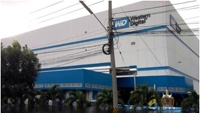Pay TV industry counts cost of Thailand floods

The well-publicized flooding in Thailand has taken toll on the video distribution industry across the whole ecosystem because of shortage and rising costs of hard disks and other storage-related components. It has also exposed the vulnerability of some leading technology players to single disasters that can sever their supply chain.
The biggest impact has been on makers of Set Top Boxes (STBs) and Digital Video Recorders (DVRs) because they rely heavily on disk drives, many of which are manufactured in parts of Thailand north of the capital Bangkok most affected by the flooding. Both Western Digital and Seagate have factories in that area and have had production seriously disrupted. Western Digital was worst affected, suspending operations in Thailand after rising flood water inundated the flood defenses at both its sites, in the Bang Pa-in and Navanakorn Industrial Parks. The company has confirmed that the flooding of its Thailand facilities, combined with flood damage to the company's supply chain in the country, will have a significant impact on its overall operations and ability to meet customer demand for its products in the December quarter.
Seagate, on the other hand, had little direct disruption as all its factories remained operational and its staff was able to get to work. But, Seagate suffered the same disruption to its supply chain as Western Digital, and was unable to confirm what impact this would have on its factory output. This highlighted one of the longer-term lessons from the flooding, which is that a manufacturer cannot, on its own, protect against natural disaster through geographical diversification, unless all elements of its supply chain do so also. Similarly, if the manufacturer’s customers are disrupted, its business will suffer even if output remains unchanged, because then the supply chain will be blocked downstream. In fact, both Seagate and Western Digital, which, between the two, make around 65 percent of the world’s disk drives, had established manufacturing plants elsewhere in the Asia Pacific region. But, these plants too were affected by the Thailand floods. Component suppliers, especially Nitec, which manufactures disk drive motors and base plates, had relied heavily on Thailand and had to shut down its factories there.
Among video technology companies, one of the worst affected has been UK based PACE, now the world’s largest set top maker by volume, having overtaken Motorola early in 2011. PACE had already been suffering from intensifying competition, leading to reduced profit forecasts during the year, lowering its share price from 234p ($1.45) at its peak to around 75p by mid-2011. It recovered to 110p, but then came the Thailand flooding, leading to a warning last week that this could cost the company up to £32 million ($52 million) in 2012. This prompted a further immediate 25 percent collapse in share price, bringing it down to 45p.
The dominance of Western Digital and Seagate made it hard for PACE to build more resiliency into its supply chain, according to its chief executive Neil Gaydon. But the company is trying — PACE holding talks with lower volume disk drive makers such as Hitachi and Samsung — to see at least if it can increase its output temporarily to soak up the demand.
PACE has been badly affected partly because it is a volume producer operating on slim margins, which makes it vulnerable to the temporary rise in price of disk drives caused by the fall in manufacturing capacity as well as the shortage itself. As it happens, PACE had completed a strategic review under its new chairman Allan Leighton, concluding that the company should increasingly focus on software and services where there is greater margin, while also finding some more high-profile customers for its premium products. Foremost among its targets is BSkyB, which with 10 million customers is the UK’s largest pay TV operator, having many subscribers of high-end services with DVRs. Leighton happens also to be a non-executive director of BSkyB, and hopes to exert his influence to get PACE in there. Currently, PACE’s significant customers include Canal Plus in France, Tata Sky in Italy and cable giant Net Servicos in Brazil.
Another big player in the TV supply chain affected by the floods was NetApp, which makes storage systems that also rely on disk drives. The company was quicker off the mark than PACE in reacting to the floods by purchasing large numbers of drives while still available, enough to maintain supplies of its storage systems until the start of 2012. Past that, however, it’s unable to predict whether there will be any impact after that. This could have impacts at various points of the broadcast cycle, since, for example, NetApp has a partnership with digital recording vendor Actus, offering a joint system for post broadcast applications including clip creation and content verification.
Get the TV Tech Newsletter
The professional video industry's #1 source for news, trends and product and tech information. Sign up below.
A number of other important players have been watching events in Thailand anxiously, including Cisco, which has put contingency plans in place and has factored the flooding into its forecasts for early 2012.
